I've heard that phrase, "the crack of doom," all my life. Learning from context, I figured it meant the end of the universe but didn't give it much thought. It recently popped into my head again, probably because I've been reading post-apocalyptic novels, and I decided to find the derivation and specific meaning of the phrase. Since I didn't feel like going to the library, where a copy of the Oxford English Dictionary resides, I went on a quest via the internet. This was a tactical error. Many, many, many people apparently think the phrase originated with Tolkien's discussion of the Ring of Power and Mount Doom. Uh, no.
I found other references citing Shakespeare's Macbeth, which seems likelier, though it also seems probable the phrase was around before Shakespeare and he just gave it power, as with so many other expressions. The specific meaning of it--thunderclap "crack" of sound, "crack" into the fabric of existence, "crack" between this world and the next--remains elusive, however. A friend who has the OED looked up the crack of doom for me and could not find a specific meaning, so I decided just to go with "the end of everything" and not worry about whether the specific wording "crack of doom" has a particular meaning.

The good guys in Dies the Fire include an ex-Marine turned bush pilot, a Celtic folksinger who's also a Wicca priestess, various ex-military (including SAS) personnel and medieval re-enactors (SCA --Society for Creative Anachronism--and others), and geeks. The bad guys are an assortment, but the one who rises to the top is a professor of medieval history (as a former history major, I give this one a bwahhahaha salute!) who loves William the Conqueror and is a former SCA heavyweight. This was the first of Stirling's many books I've read, and I look forward to seeing him at DragonCon.
Archery plays a big role, which appeals to the longtime Robin Hood fan in me. The series also has certain Arthurian overtones, and I'm always a sucker for that. One of the characters has a severe case of Tolkien-itis, which creeps into the story in many ways, some of them humorous, and I love Tolkien anyway. References to other books and genre conventions add fun little zings here and there.

I recently discovered a book on a library sale table that I remembered reading in junior high, Robert Silverberg's Time of the Great Freeze, a YA about people surviving an ice age, and that truly was the first post-apocalyptic novel I read. I remembered liking the Silverberg, even after many, many years, so I bought it--for 50¢ or something like that. I'd forgotten about it until recently, when I was looking over the bookshelves for something else and spotted it.
Thinking about this reminded me that I used to read, many years ago, a Gold Key comic book called Mighty Sampson, which was set in post-apocalypse New York City. I tracked down the title and bought an issue at our local comic book convention this summer, but I haven't taken it out of the protective sleeve. I probably won't. Looking at the art on the cover, I think it's one of those things that, as the boy says, you shouldn't look at now because you wouldn't like it as much and that would take away from that earlier pleasure in it. Still, I'm glad to have it for old times' sake.

What all of these books have in common is a struggle to create a society or social group with morals and ethics and honor, to keep back the tides of darkness when the worst in human nature comes forth. A friend of mine is more interested in the social structures and technological issues. I care more about what happens to the people and how they interact.
My favorite character dies at the end of the third book in the Stirling series. Despite this rather annoying conclusion, which at least had a big story payoff, I liked the other characters and the world enough to read the next series, Emberverse II, as well. I already have the first book, The Sunrise Lands. The ending of the first trilogy is not the HEA we expect for romance, but it is a triumphant ending, as befits the end of a trilogy's story arc, albeit at a high price for the heroes. I think that's a key genre difference.
In science fiction and fantasy, victorious endings tend to have a higher personal price than in romance. They may not be happy, necessarily. The ending of LOTR is not happy but bittersweet, at least for Frodo and the elves, as the Age of Men begins in Middle Earth. One could argue that LOTR also is apocalyptic, just in a different setting than the term usually evokes. When romance characters die, they tend to have been either unsympathetic anyway or else minor. Getting the reader to care about a character who then dies tends to spoil the HEA nature of the reading experience. It's not what we expect in a book that says "Romance" on the spine.

I like the character progression in a series, such as the Nightkeepers and Elizabeth Phoenix books have. That's much more common in science fiction, fantasy and mystery than in romance, but I'm glad to see it getting a toehold in romance. It certainly hasn't hurt Eve Dallas and her Roarke. Come to think of it, their stories are set after a devastating conflict, the Urban Wars. Gena Showalter's Alien Huntress series is set in the aftermath of a human/alien conflict.
I've also noticed other books appearing in the Romance section that have apocalyptic events of some sort in their backstories. Maybe this and steampunk are the new rising wave, but that's a subject for a different blog.

Hmm. I appear to have read some very gloomy books--but they all had satisfying endings. Sort of like when the Battlestar Galactica crowd (speaking of apocalypses) reached Earth. Other TV series with post-apocalyptic settings include Jeremiah, starring Luke Perry and Malcolm-Jamal Warner (years prior to the series' opening, a virus killed all the adults on the planet, leading to social breakdown) and Dark Angel (an EM pulse killed all the tech and wiped all the bank accounts, and people are struggling back). There's also Jericho, not to be confused with Jeremiah though I sometimes do confuse them, about the aftermath of nuclear war in a small midwestern town. All three of these latter ones turn up on SyFy from time to time, usually on days when I have to go teach, alas.
There's a whole spate of movies, of course, from Invasion of the Body Snatchers to the Planet of the Apes saga and The Omega Man to Will Smith's I Am Legend and Independence Day. Just out or about to come out on DVD are The Book of Eli with Denzel Washington and The Road with Lair favorite Viggo Mortenson. The Road is based on a Cormac MacCarthy novel, which I pulled off the shelf at the store to check out. Skimming through it, I decided it probably wasn't for me, and I didn't like the ending. But having two such movies come out recently also encourages me to think this may be a rising wave.
In a way, the Terminator series fits here. Last summer's Terminator Salvation (Sam Worthington, anyone?) definitely did. I tend to prefer movies without flesh-eating zombie-like creatures or spewing blood, as a rule, though I did make it through 28 Days Later, which the dh endured with me. We used the fast-forward button a lot. We both were more impressed with Children of Men, based on the P.D. James novel and starring another Lair favorite, Clive Owen, in a non-action-hero role, and I liked Vin Diesel's Babylon A.D. The latter two may be more dystopian (lacking a cataclysmic upheaveal) than post-apocalyptic, though I'd say a virus destroying humanity's ability to procreate, as in Children of Men, qualifies as an apocalypse.
 I'd almost forgotten how much I enjoyed the arc about the threat of Ragnarok, the end of everything in Norse mythology, in the Marvel Comics Thor series. I read Thor (now in production as a movie with a stellar cast) for several years, though I've drifted away from it now, and I think that storyline helped pull me into it. So did Sif, the warrior goddess who's married to Thor in mythology but who pined for him while he adored mortal nurse Jane Foster in the comic book--though an interesting twist resolved that particular conflict. At that time Sif wore a really cool silver skinsuit and fought with a sword. She still has the sword, but the costume (see below) has changed. Regrettably, imho.
I'd almost forgotten how much I enjoyed the arc about the threat of Ragnarok, the end of everything in Norse mythology, in the Marvel Comics Thor series. I read Thor (now in production as a movie with a stellar cast) for several years, though I've drifted away from it now, and I think that storyline helped pull me into it. So did Sif, the warrior goddess who's married to Thor in mythology but who pined for him while he adored mortal nurse Jane Foster in the comic book--though an interesting twist resolved that particular conflict. At that time Sif wore a really cool silver skinsuit and fought with a sword. She still has the sword, but the costume (see below) has changed. Regrettably, imho. (Just FYI, I didn't see what Thor liked so much in Jane when he could've had Sif, who's not nearly so dynamic in the mythology as in the comic, but that's also a whole different blog topic). I read the Ragnarok arc about the time I discovered Wagner. I had an album of excerpts from Wagner's Ring Cycle, and I love "Ride of the Valkyries" and "Gotterdamerung," the Twilight of the Gods, though I prefer the orchestral part without the choral overlay. Very dramatic. Lots of brass and tympani.
(Just FYI, I didn't see what Thor liked so much in Jane when he could've had Sif, who's not nearly so dynamic in the mythology as in the comic, but that's also a whole different blog topic). I read the Ragnarok arc about the time I discovered Wagner. I had an album of excerpts from Wagner's Ring Cycle, and I love "Ride of the Valkyries" and "Gotterdamerung," the Twilight of the Gods, though I prefer the orchestral part without the choral overlay. Very dramatic. Lots of brass and tympani.Anyway, all this mental meandering led me to wonder why I like stories with these themes. I think it's partly the heroic struggle to maintain not just life but decency, but it's also that the stakes are so very high. When failure means the end of all things good and true, as we deem them, the stakes can't go much farther up. High stakes ratchet up the conflict and the risk and give a good, affirming ending, in whatever genre, that much more punch.
As befits the meandering nature of this blog, I have varied questions, so feel free to answer any, all, or none, as usual: If all the tech ended tomorrow, what would you do first to cope? Do you like apocalyptic novels or films, or do you prefer a more settled story environment with more personally focused stakes? What's the most intense, gut-wrenching book or movie you can recall? Who're your favorite romantic couple in a high-stakes situation?

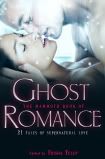
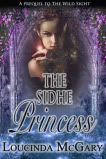
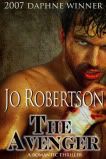
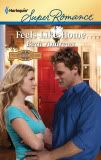
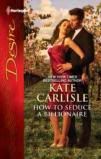

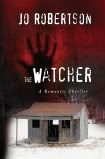


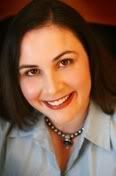











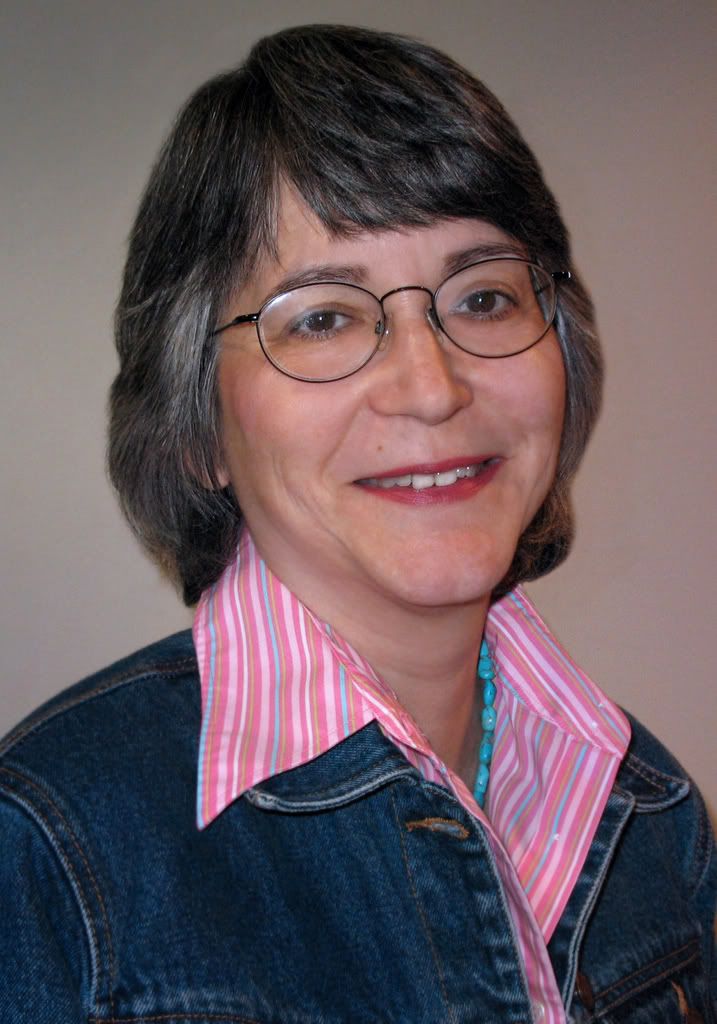




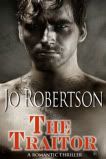




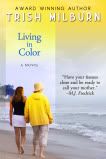
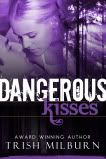









































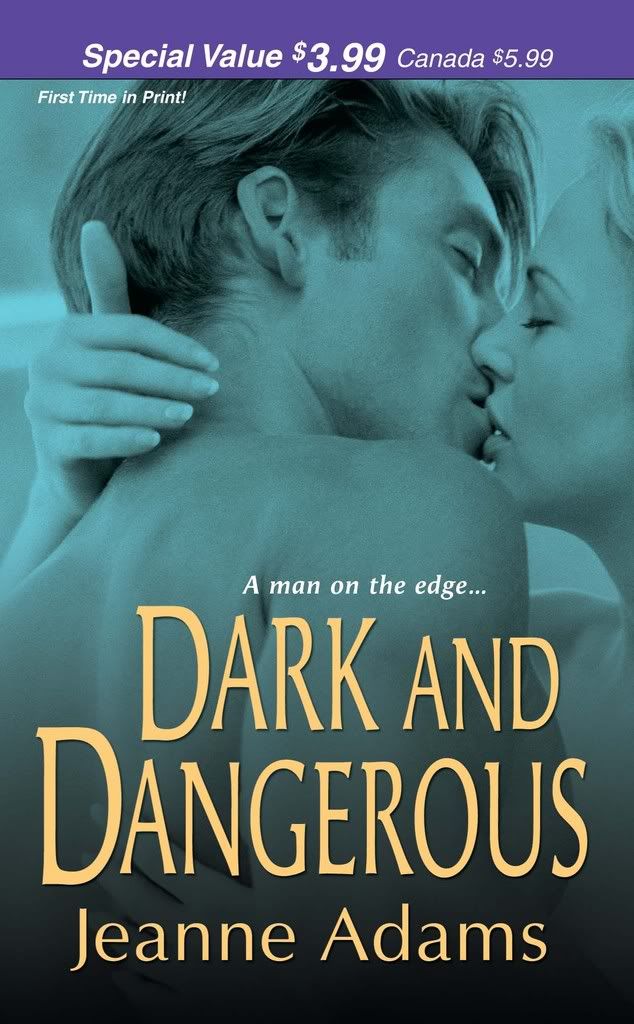



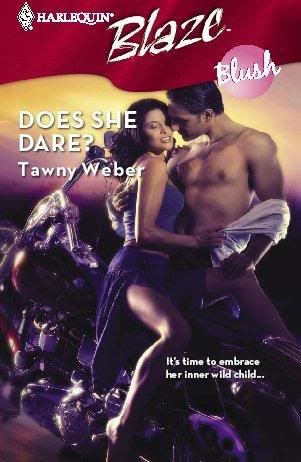





72 comments:
I've got him!
Hi Nancy,
We read "On the Beach" in 7th grade and then we watched the movie. I do enjoy apocalyptic movies and some of my favorites are "I Am Legend" and the Resident Evil films.
Hey, Jane! Lasso that chook!
Nancy, I went through a huge Neville Shute stage when I was a teenager. Strangely not much of the Aussie stuff. Never read A Town Like Alice, for example. But I remember crying my way through On the Beach. Not sure what I'd make of it now. Don't even remember it too well although I remember them going in the submarine to the Northern Hemisphere because they're getting radio signals and it's all such a downer because it's an automatic beacon or something!
Actually this will amuse you. Ava Gardner starred in the movie of On the Beach which was filmed in Melbourne. She said, "On the Beach is a story about the end of the world, and Melbourne sure is the right place to film it." Ouch!
I was thinking about the Handmaid's Tale by Margaret Atwood as I read your post. Definitely wrenching and absolutely riveting but not terrifically jolly. Otherwise I don't think I've read a lot of post-apocalyptic fiction. No, there's one more - a wonderful book by Russell Hoban called Riddley Walker that I remember very vaguely. It's got all this really haunting stuff about people putting together a religion from the ruins of Canterbury Cathedral. Many years since I read it though.
Hey Nancy!
Gosh Anna...don't be scared, but we're on the same thought pattern here! The first book that came to mind was Atwood's "The Handmaid's Tale"...I remember the ending and though Natasha Richardson was still alive, you don't know if Aidan Quinn will survive to meet her. I also went through a big Neville Shute phase! I have almost every one of his books...some so old that I keep them in ziplock bags. :)
For some reason, the movie "Shenandoah" comes to mind. (weird!) But I remember the young woman who saw her husband killed next to the well by soldiers and she took her own life...for her it was the apocalypse.
I prefer a more settled story environment. Maybe it's because I live a few miles from the Hayward fault line and "the crack of doom" could happen at any time!
Congrats, Jane!
Hmmm...I'm not very "crack of doom" oriented, although I love action movies and things that go "boom". Does Prince of Persia count? ;)
I did love the second Terminator movie. I'm thinking maybe Allison Brennan's new 7 deadly sins series could fit into the 'crack of doom' scenario (and man, was the first book good!)
Jane, congrats on the GR!
Nancy, I really enjoy apocalyptic novels, but haven't read many in recent years. I've seen more movies than I've read books of that sort.
One that I always come back to, though, is Stephen King's "The Stand". If anyone has only ever seen the movie (or miniseries), read the book. It's a million times better! I particularly love the romantic relationship between Frannie and Stu, because it develops very slowly and also because Stu is so careful and cautious with her. Stu is the penultimate "stand-up guy" in the book and their formation of a family represents hope for the entire planet and the future of mankind. Good stuff!
Now I have to go take a nap. That was a lot of reading! *g*
Gillian's comment about Allison Brennan's new series reminded me of an apocalyptic movie I really loved, Twelve Monkeys. Terry Gilliam is such a weird and incredibly gifted director and he does apocalyptic movies so well. This film is wonderful.
I tend, in general, to like movies that are more upbeat apocalyspe (Independence Day, Armageddon) rather than the darky dark ones (The Road).
Jane, congrats on the rooster!
Isn't Gregory Peck in the movie version of On the Beach? That would be a reason to watch it, except it seems like a downer.
I didn't see I Am Legend, though Will Smith is always a great action hero, because I dreaded the whole flesh-eating zombie thing, though the book is a classic. Looking at it now, though, having endured 28 Days Later, I'm thinking I Am Legend might not be so bad?
I watched one of the Resident Evil movies--lots of great action. I think it might've been the second one.
Anna, I hadn't heard that about On the Beach. Definitely not flattering to Melbourne.
I read A Handmaid's Tale, too. Very well written book but pretty grim in its prospects for humanity, especially women.
I hadn't heard of Riddley Walker. I'll have to check it out. I'm just now reading Stacia Kane's Unholy Ghosts, which is set after an apocalypse in which the dead rise and kill the living, and the Church of Truth runs the country. It's interesting.
PinkPeony, hi! Yeah, I'd say a geologic fault line gives a whole new meaning to "crack of doom." :-)
You know, I can't watch the movie Shenandoah. Jimmy Stewart is great, and I had a crush on Phillip Alford, who played the youngest son, the one they went off looking for (he's better known as Jem Finch in To Kill A Mockingbird, my all-time favorite movie). What happens when the deserters come to the farm is so grim and so heartbreaking, I have to skip that part. So I had forgotten that character took her own life.
I never saw the movie A Handmaid's Tale. After not especially liking the book, I decided to pass on the movie. Natasha Richardson was a wonderful actress, though, wasn't she? And I'd definitely be rooting for Aidan Quinn.
Gillian, I hear Prince of Persia is fabulous. The dh and I have considered seeing it but have decided to wait until the boy comes home (one week, one week, bit mom squee! here) in case he wants to see it.
You know, I keep seeing bits and pieces of T2 on tv, but I've never seen the whole thing. Maybe I should rent it. Plus I hear Michael Biehn had a dream sequence scene that was cut from the film but is in special features.
Caren, I think I saw part of The Stand on tv. Is Rob Lowe in that? And Jamie Sheridan as the devil? I don't read Stephen King because he's too scary for me, which is why I usually don't watch movie adaptations of his work, either, but I did catch bits and pieces of that one, I think.
Caren, I've never seen Twelve Monkeys or even heard of it. Just looked it up on imdb, though, and it sounds interesting.
I love on the Beach. It's so sad, but at the same time the characters find truth in their last moments. Waltzing Matilda will always remind me of that movie.
Hi, Dee--I didn't remember Waltzing Matilda from On the Beach, but I saw the movie a long time ago. I now associate that song with Australia, which I saw many times on HBO.
Hey Nancy,
Fabulous blog! I really enjoyed reading about the post-apocalyptic themed books and movies.
Normally, I avoid post-apocalyptic books and movies because they're depressing to me. I'm a HEA reader and movie goer. I do like the movies where "hope for mankind" is the theme, and we as a society have learned to overcome the problems that led to the original demise of our civilization.
I think that is why I like the Star Trek series so much. It presents a hopeful future for mankind. We have learned how to live together, we have used our knowledge for the good of all, and now we can shoot for the stars!
Michelle
Michelle/Arwen, I agree with you about Star Trek. Its optimism is very appealing. I think most of us like the message that we can get past all the conflict and hatred and create a better world.
The post-apocalyptic books and movies I like end on an optimistic note. In the S.M. Stirling series, the good guys build a viable, cohesive, decent society even if it's not much above the medieval in levels of technology. I didn't feel The Handmaid's Tale, for example, was optimistic, which is why I never read it again and never bought it.
Nancy, I can see you have given the post-apocalypse quite a bit of thought. :)
I like the Hunger Games novels, which is about as post-apocalypse as I get (and I do think they qualify).
My daughter took a short course on "How to Survive an Apocalypse" which i thought was a hoot, but it was actually a pretty good sociology class, where the students had to rethink government, economy, defense, natural resources, etc. A friend of mine loved the show Jericho which was built on the same concept, the making of the rules, rather than merely survival.
I did love the Terminator movies (except for 3), but the future is more of a flash-forward, more than being a critical part of the narrative.
As an aside, I remember when I was little bitty and the sky was hugely red late one afternoon. My sister told me the world was ending and I believed her. Since that moment, I have been apocalypsely-adverse. :)
Kathleen, I haven't heard of the Hunger Game series. I'll have to check that out.
Your daughter's course sounds fascinating. I've picked up some books on related topics lately, and I hope I'll someday have time to read them!
DragonCon has a track called Apocalypse Rising. That's the track that brought in Michael Biehn last year. The year before, they had all sorts of fascinating topics like radiation and nuclear winter and primitive tech, but last year was Mostly Zombies Most of the Time, so I gave it a miss. I'm hoping for more variety this year.
"Hunger Games" What a great book! Suzanne Collins does a superb job of worldbuilding. I haven't read the sequels, but they're on my reading list.
Nancy, after today, I'm going to get S.M. Stirling's books. Any book, which has SCA reenactors is going to be a good read to me.
Since we're getting close to 2012, the History Channel has ran a lot of Mayan and doomsday documentaries, and my husband loves watching them. Now, that I think about it, I like watching Atlantis documentaries, and why and how it was destroyed. I guess I do like post apocalytic stories.
Hi, Michelle/Arwen--I think you'll like the Stirling series. It's not as focused on the characters' internal lives as a romance, but I obviously enjoyed it a lot.
I looked up The Hunger Games. Sounds very dark. Twisty, the review said it was.
I remember reading "On the Beach," but not much about the story -- but that was long ago.
As for cracks, there's been a crack in the wall in some recent Dr. Who episodes that's pretty freaky and doom-ish.
As for doom but not necessarily apocalypse (although it may have felt that way at the time), one of my fave books is The Doomsday Book by Connie Willis, with its stunning portrayal of the Black Death in 1348. I LOVED that book, and I don't know why I haven't read more of hers.
I think I'm more into personal relationships than "save the world" stories, but a combo is nice. I just read Joanna Bourne's "The Forbidden Rose," which takes place in France at the time of the Reign of Terror. Like her other books, it's an intense romance set against a complex and stirring backdrop. I like her books so much that I'm re-reading the others now.
Probably the most harrowing book I've read (at least in recent memory) is Diana Norman's The Pirate Queen, which deals with Ireland at the time of Elizabeth I. I learned a lot of sickening stuff about persecution and massacres of the Irish, thus filling a huge gap in my knowledge of history and leading me to read more about Ireland.
The Doomsday Book by Connie Willis--one of my faves, too.
Hunger Games is dark. Very dark, but it's well-written IMHO.
What about anime and manga? With the atomic bombings of Hiroshima and Nagasaki woven in the Japanese collective conscious. I think "The Crack of Doom" is featured prominently in their cultural narratives from print to television.
Nancy, Twelve Monkeys was sort of artsy, like many Terry Gilliam films, so I'm not surprised you didn't see it. *g*
Speaking of zombies, the most fun post-apocalyptic movie EVER is Zombieland. It's also the most fun zombie movie ever. LOVED IT!
One that was NOT fun, but was rather optimistic in the end, was The Book of Eli. That was a GREAT movie that my whole family loved. Dark. Gritty. Definitely not happy, but a GREAT film. And it's all about the power of books!
Another series that was definitely post-apocalyptic (at least as far as Earth goes) was Firefly. That is a wonderful series created by Joss Whedon that is, essentially, cowboys in space. The crew of Serenity is a band of misfits, outcasts and ex-soldiers who were on the losing (but correct) side of a revolution against the Alliance. Great stuff!
They do deal, though, with fallout from the Alliance trying to re-create Earth in space. Not pretty.
Nancy, if we had no tech suddenly, the first thing I would do would be to: a) plant a garden; b) buy or trade for farm animals; and, c) find a butcher or farmer who would teach me how to slaughter animals. The world may come to a screeching halt, but my family and I will have food!
Wooohooooo Jane!
Nice job!
What are y'all gonna do today?
Er...I guess I should ask, "what are y'all doingtoday, since it's afternoon already.
Hey Nancy,
I can't read most post-apocalyptic stuff because it's so depressing to me, and the depression hangs with me and I can't get rid of it.
The post-apocalyptic stuff (including wannabe stuff like the Terminator films, etc)which has been universally popular as films have almost always been the ones which have some kind of happy or hopeful ending I think. Otherwise they tend to appeal to a smaller segment of the population which has some strange ability to stay functional after watching them. It's a skill I don't have.
I watched the film Red Dawn many years ago--probably 20 I'd say--and I still struggle with teh images and issues surrounding it. Same reason when I was 15 and my mom pushed me to read The Hiding Place I got a little way into it and had to put it down and still (yes, after all that time) have those images seared into my mind and soul and dream about them.
Apocalyptic fiction seldom has up endings. I know there are exceptions, but not too many. I just can't go there.
It's very strange, as I have a survivalist's nature and come from stock which believes in being prepared. We a) garden b) can c) store up water and keep emergency supplies on hand, etc etc. I don't like it that my source of heat at the moment requires electricity. I want my chimneys rebuilt and my fireplaces made functional. I have stuff with which I could cook over an open fire, and a couple of ricks of firewood in my back yard.
So while I'm somewhat well-set-up mentally to survive, I'm no longer prepared, physically, to do so. And I'm not mentally able to view the imagery associated with that possibility and consider it entertainment. It just affects me too deeply.
I know. I'm a wuss that way. *scuffs toe in dirt, looks embarrassed.*
I spent the morning battling the Demon Wisteria. It had decided the power and cable lines were fair game. Nuh-uh.
This afternoon I'm going to tackle the Demon Scene I've been writing for days.
Apart from that -- dying hair, doing laundry, finding something for supper that involves no cooking, and going through a bunch of very boring files. That's last on the list because I hope by the time I get to it I'll be too tired and get to read The Spymaster's Lady instead. Oh, and watch Dr. Who. Yippee....
I think The Road by Cormac McCarthy fits this theme. It's a movie now but I haven't seen it yet. It's one of those books that definitely sticks with you.
Nancy, great post! But, um ... your brain is an intimidating place for someone as shallow as I am!! :-)
But I can get into this! I do agree with Caren in that I prefer a good upbeat ending to an apocalyptic film (loved Independence Day). But having said that, one of my favorite shows a few years ago was Dark Angel. Loved it! Great cast! But no happy endings there. And I liked the Terminator, too.
But I must admit I prefer a nice light romantic comedy most of the time. That's me. LOL
Congrats on snagging the bird, Jane!
Jen, I haven't seen Shenandoah! Not sure from that description if I want to, LOL! I actually thought the movie of the Handmaid's Tale did a fair stab at conveying the book although I think the book is more powerful. Robert Duvall was wonderful as the patriarch. Man, scary!!!!!
Nancy, I think On the Beach had an all-star cast, including GP. I've never seen the film. Hallmark made a miniseries of it a few years ago too. Not sure if they would have stuck with the original downer ending. Doesn't seem very Hallmarky!
I'm not really a "crack of doom" person either. I usually run from those kind of movies and hardly ever pick up those books. I love action and adventure, but anything apocalyptic scares the beejeebers out of me.
The last movie I saw close to that theme was The 13th Warrior, but I watched most of that through my fingers as they covered my eyes...just in case it turned gruesome. Which it did quite often.
I'm a Disney girl. I ~loved~ Prince of Persia.
Kathleen, snorking at 'apocalypsely adverse'. What a gorgeous description!
Can't say I'm well read in these types of stories, Nancy. Not much humor there, but I did read one of Nora's Eve Dallas short stories. I might have to try more of those.
Barbara, The Doomsday Book has been on my "should read" list for years. It got raves and is, I think, still i print. I'll have to move it up the list. Thanks for the recommendation.
Oh, yeah, Barbara--one reason I sometimes prefer historical romance to historical fiction is that there tends to be less dwelling on the grotesque ways people kill each other. I got turned off on a fantasy series once because the author seemed to really absorbed by the specifics of medieval torture. Um, I know where to find that stuff if I want it. Which I generally don't. Just an idea is enough for my imagination to follow.
Michelle, another vote for The Doomsday Book! I know I have a copy here somewhere. It's the specific "where" that's the problem, but as I told Barbara, I may need to move it up the stack. When I figure out which specific stack is hiding it.
Caren, you know I love Firefly! I'd agree that it's post-apocalyptic, though in an other-world, SF way.
You said: if we had no tech suddenly, the first thing I would do would be to: a) plant a garden; b) buy or trade for farm animals; and, c) find a butcher or farmer who would teach me how to slaughter animals.
This is basically what the people in Dies the Fire did. It helps to have big tracts of land available to you. But then, of course, you have to be able to defend those tracts from people who find taking your crops and farm animals easier than raising their own. Which was also an issue for the people in the book.
I bought a discontinued Army field survival manual, and it actually talked about how to butcher game. Which gave me kind of an eeew moment, but the back of my mind filed this away as potentially useful for a book someday. I sincerely hope it's not a skill I ever need for real.
Cassondra, I know what you mean about needing an "up" ending. This is my problem with a lot of things. I don't want the end to be a downer. All of the books I mentioned in the blog had "up" endings, so there are more out there than you might think.
You said: I'm a wuss that way.
Oh, I really don't think so. I can't see that label fitting you in any way. But if you are a wuss about this, then I am, too. I much prefer the upbeat ending to the downer.
People who live in rural areas are far better equipped than people in cities to survive in the event of some apocalyptic event. I've known survivalists who lived in towns and stockpiled food, but if you don't have a way to get more food, either by hunting it or growing it or raising it, as you could do with your gardening and canning, the stockpile eventually will run out.
I happened across a show a couple of weeks ago about EM pulses, which you know are an interest of mine. According to this program, EM pulses knock out electricity in part by overloading and blowing out the substations (or whatever it is the power lines from the main generators feed into so that the power is then dispersed on the grid--I was so gobsmacked by what came after, I forgot the term), which are _not_ manufactured in this country and take 18 months to obtain replacements for. This was a major "huh? WHAT?" moment for me.
When Hurricane Hugo came through here in 1989, we had no power for almost 3 weeks and no telephone for about 2, and this was back before cell phones were so common. We have a wood stove, and it doesn't get cold in September, and the dh has a grill. So we coped. But getting the food to put on the grill was a bit of a challenge because, of course, the food in the supermarkets spoiled.
The city was in such bad shape that the National Guard had to patrol, and I was grateful for them.
Barbara, I love wisteria, but I've heard it's a nuisance to have around. Sounds like it.
Joanna Bourne is also on my "must read" list. I think I finally acquired The Spymaster's Lady. It's in one big, fat piles designated TBR.
Good luck with your scene.
Catslady, did you like the book The Road? I suspected I might not--downer prospects--and so gave the movie a miss despite the presence of Viggo Mortenson.
Kate, glad you liked the post! You wrote: But, um ... your brain is an intimidating place for someone as shallow as I am!! :-)
According to the dh and others, my brain is sometimes a baffling place. *g* I just like to meander down odd paths sometimes.
You underrate yourself. Nobody who comes up with the kinds of characters and plots you do is shallow. I'm looking forward to your Millionaire book.
I loved Dark Angel, own the series, though I hated the way they came up for with keeping Max and Logan apart. I prefer the first season, I think. The world was an interesting mix of scruffy grunge and prosperity.
I loved Independence Day--very upbeat, lots of boom, and some zingy humor.
Anna, I think I avoided the movie The Handmaid's Tale because the ideas behind it were, as you say, scary. The book was disturbing enough, so I gave the movie a pass.
I didn't realize Hallmark had done OTB. As you note, it really doesn't seem like a Hallmarky kind of thing.
Gerri, I loved 13th Warrior, which I don't think I would've watched if you hadn't recommended it. Antonio Banderas is great in that, and it's a change of pace from his usual macho characters. That and Zorro are my favorites of his roles.
We may see Prince of Persia, but we're waiting until the boy gets home in case he wants to go.
Donna, you're right about there not being much humor in these types of books. It pops up in places but tends to be wry or dark.
I thought I was the last person in the Lair to have Eve Dallas suck her in as fast and thoroughly as a black hole!
Those books, too, have humor in them, more in the later books, I think, but I wouldn't call them funny. They're also not set in a grim future, aside from the whole serial killer angle, which is generally pretty grim.
Nancy...I had a mad crush on the youngest son in Shenandoah too! Remember the scene at the end when he walks into the church and the expression on Jimmy Stewart's face?
PinkPeony wrote: Remember the scene at the end when he walks into the church and the expression on Jimmy Stewart's face?
Yes! I love that scene!
That's my favorite part of the movie. Well, that and the part where Rosemary Forsythe and Doug McClure get to have their wedding night after the family rescues him from the prison train. And the part where she informs her brothers she can do just about everything better than they can, so she's going, too.
Hey, Nancy. I'm not much into post-apocalyptic stories but I do have The Hunger Games on my TBR pile and am looking forward to reading it.
My son just finished The Road on his return trip from Nashville this week and was sort of 'eh' about it. Not because it was dark but because he wanted more action (btw, he watched the film as well and said the same thing *g*)
He and his GF saw The Book Of Eli and really liked it.
Beth, thanks for the info on The Road. The Book of Eli definitely had boom, though a lot of it was from automatic weapons fire rather than actual explosions, though it did have those.
The Hunger Games sounds like something I need to check out.
Nancy said:
I was so gobsmacked by what came after, I forgot the term), which are _not_ manufactured in this country and take 18 months to obtain replacements for. This was a major "huh? WHAT?" moment for me.
Most people would be gobsmacked if they had to do with out what the government presently provides for us, and what it would not be able to provide given a serious widespread catastrophe or situation of any kind like this.
The "everything's okay, we'll take care of it for you" is not a good thing for us as individuals, or for us as a population, IMO, because it turns over responsibility for our selves to others, and I just don't believe in that as a philosophy on any level. In fact I believe the fostering of this attitude is unfortunate because it also tends to make individuals take on the attitude that not only do they NOT have responsibility for their own safety and security, but they don't have responsibility for their own actions, and that they are entitled to have someone else simply "take care of us."
It's a mark of "my raisin'" I guess, that I feel this way, and that I tend to lay neither blame nor responsibility on others for much of anything if I have the power to handle it. So I guess the post-apocalyptic bothers me on a lot of levels because it really brings home the direction of things--for fewer and fewer people to have a)means and b) skills to manage in these situations.
In my continuing effort to remain positive overall, I do what I can to keep myself in good stead for emergencies and sidestep paying attention to what others do not understand or do. I just get depressed if I look at it, so I don't look. :0/
Hi, Nancy, thought-provoking post that's mainly over my head LOL. I've been telling myself to branch out into the sci-fi arena, but can't seem to find the right vehicle.
I don't like the technology to override the humanness of the story, whether it's a romance or not. I think that's one of the reasons (in addition to ROARKE!!!) that I like the JD Robb series. The futuristic elements are very basic, hardly noticeable and slightly referenced -- an autochef, the urban wars, sealant at a crime scene.
Jane, I'm with you on I AM LEGEND. Of course, I'd follow Will Smith to the ends of the earth; he's a fabulous actor. But I like the premise of the story too.
Anna, another interesting distopian novel by Margaret Atwood is ORYX AND CRAKE, which I found very fascinating. Of course, I'm prejudiced toward Atwood; I think she's brilliant.
I was wondering about the "crack of doom" phrase, Nancy. Shakespeare invented so many new words and phrases that I wouldn't be surprised if that was one of his too, a sort of bastardization of "crack of dawn"?
OH, and Nancy, I love the boy's comment about watching something later on. I'll never watch JAWS again b/c I know the special effects are dorky and I don't want to ruin the delicious scariness I experienced the first time around. And the music is iconic!
Cassondra, I agree about assuming responsibility. If something of the majorly catastrophic nature were to happen, people in cities would go through whatever they had stockpiled, and then they'd be done. Unless they could get into the countryside AND had a place to go there.
I don't blame you for shying away from things that just depress you. I do it, too.
Jo, if you're commenting, it's not over your head :-)
You wrote:I don't like the technology to override the humanness of the story, whether it's a romance or not.
I don't either, and I suspect this may be why I've never tried cyberpunk. I fear this may be too techie a subgenre for me. Of course, in most of the post-apocalyptic novels I've read, the tech is way too limited to override much of anything.
You also wrote: I'll never watch JAWS again b/c I know the special effects are dorky and I don't want to ruin the delicious scariness I experienced the first time around. And the music is iconic!
I totally agree about the music. John Williams was a genius at scoring films. I never saw Jaws--too prone to suggestion, and I like to swim in the ocean. I won't even go in the water if someone's fishing nearby since they tend to haul in the occasional sandshark, and I figure, assuming the worst, these may have buddies out there under the waves.
Jo wrote: Shakespeare invented so many new words and phrases that I wouldn't be surprised if that was one of his too, a sort of bastardization of "crack of dawn"?
This is a new one on me, "crack of dawn." The OED did not have "crack of doom," nor did the Wordsworth Dictionary of Phrase and Fable, which sometimes has odd phrases in it. Hmm. Thanks, Jo.
Well done Jane enjoy your day with him
Great post Nancy
I am not into apocalyptic movies or books although I really did enjoy The Planet of The Apes movies all those years ago and did watch Jericho on TV for its short span and enjoyed Independence Day and it is still one of my favourite movies and I have it on DVD so watch it here and there.
As for reading I do prefer a romance so as I know I am getting HEA. I have just finished reading an historical set around the time of the revolution in France and the hero and heroine go through a lot to get to their HEA great book I relly enjoyed it The Making Of A Duchess by Shana Galen and I guess that part of history was a big turning point.
Have Fun
Helen
Hi Helen--Glad you liked the post. Planet of the Apes, Jericho, and Independence Day, huh? For someone who's not into post-apocalyptic, you've seen a fair number. *g*
I also like the HEA aspect of romance. If I'm reading for escapism, I really don't want to be hit with a serious downer. For me the French Revolution overall is a downer, but that book sounds interesting.
That's funny, Nancy, since we're of the (relatively) same generation. My mom always used to say my dad got up at the "crack of dawn," meaning, of course, waaaayy too early for her.
Jo wrote: My mom always used to say my dad got up at the "crack of dawn," meaning, of course, waaaayy too early for her.
Oh! THAT crack of dawn. Ack! My folks said that, too. I even say it. Duh! I just totally blanked.
Thanks for reminding me, Jo.
Hey Nancy! I'm late to the party, but I wanted to say great blog. :> I'm not big on post-apocalyptic stuff, although I really liked a series by Sterling Lanier called Heiro's Journey and Unforsaken Heiro. Sterling passed away prior to finishing the series, which is a total bummer. The series is very postive and has a good line of reasoning and in setting up the world. I'm sorry he never finished it.
Hi Nancy,
Sorry I missed the party. :-( Had a busy day at my RWA Chapter meeting then came home to the DH's car broken down.
GREAT subject and am not surprised that "the crack of doom" was from MacBeth. Tolkien seemed to take a lot of inspiration from that particular play. Those 'woods rising up to march' against MacBeth must have surely inspired the Ents and their march on Isengard.
AC
Jeanne, thanks. I think you've told me about those books. They do sound cool. Too bad he never got to finish the series.
AC, so sorry about the car! I hope it was easy to fix.
I didn't notice those Macbeth references in Tolkien. Clearly, I haven't paid enough attention to the play.
Nancy, sorry I'm so late commenting, especially since I'm a big fan of post-apocalyptic stories. Things like the movie The Day After Tomorrow and a recent YA series I read, The Last Survivors trilogy by Susan Beth Pfeffer. This series takes place after a giant meteor knocks the moon closer to Earth, causing cataclysmic environmental change. It amazes me how quickly man can go to his baser, more animal-like nature, and I like the stories where the main characters struggle to keep civility alive as well as themselves.
Oh, btw, I loved Sunshine and really wished there was a sequel.
Hi, Trish--That YA sounds like fun! In an appropriately gloomy, post-apocalyptic way, of course. :-)
I forgot about The Day After Tomorrow. I understand the science in it is iffy, but it's a fun movie.
We'll have to check out the Apocalypse Rising track at DragonCon and hope it's something besides zombies, which dominated it last year.
Nancy, I liked the book very much. Probably more than I would like the movie - I hear it was changed or expanded on, like the wife having a larger part in the movie. It's rare for me to like a movie over a book.
Hi Nancy, I enjoyed this blog post. Since I like apocalyptic stories, in both books and movies, I found your comments interesting. I especially liked your insight that "Lord of the Rings" is an end-of-the-world story. Our tastes differ. I value ideas and events above human relationships. I prefer science fiction to fantasy, generally avoid romance, have not gotten into vampires or zombies, and am attracted to realism. (Humorously, I had to search the Internet to find the meaning of HEA while reading your article.) I didn't add any books you mentioned to my reading list, but you did mention a movie of which I was not aware, "Babylon A.D." I've added it to my to-see list. Thanks.
I thought of an apocalyptic novel I read a couple of years ago that you might enjoy. In Leigh Brackett's The Long Tomorrow (1955) the Mennonites thrive in a post-apocalyptic America because they were the most self-reliant people before the collapse of society. Many readers praise George R. Stewart's Earth Abides (1949), which is the story of the slow rebuilding of society after the apocalypse, but I found it boring.
I think the only vampire book I ever read was Dracula by Bram Stoker, when I was in the seventh grade. I've seen several vampire movies, but none held much appeal. Due to the urgings of a friend who loves zombie books, I finally read my first apocalyptic zombie novel, Blood Crazy by Simon Clark. It was entertaining enough, but I didn't find the zombies believable. I have two more zombie books on my to-be-read shelf: Risen by J. Knight and Plague of the Dead (The Morningstar Strain) by Z. A. Recht. I chose both based on their praising reviews.
I researched "crack of doom" in my books at home. The phrase isn't in my Webster's Ninth New Collegiate Dictionary, The American Heritage Dictionary, The Oxford Universal Dictionary, Brewer's Dictionary of Phrase & Fable, or several other word and phrase references. It is in my The Random House Dictionary of the English Language (unabridged), which has the following two definitions, with no etymological information: "1. the signal that announces the Day of Judgement. 2. the end of the world; doomsday." My Bartlett's Familiar Quotations lists only one reference, Shakespeare's use of the phrase in Macbeth, "What! Will the line stretch out to the crack of doom?"
The phrase is also in my wonderful ten-volume 1904 set The Century Dictionary and Cyclopedia, which says, "The crack of doom, the signal for the final dissolution of all things; the last trump." It then cites the Shakespearean quotation and one by Emerson. In Emerson's essay "The American Scholar," Emerson emphasizes that the scholar should think for himself. That's the context in which he says, "Let him not quit his belief that a pop-gun is a pop-gun, though the ancient and honorable of the earth affirm it to be the crack of doom."
I didn't read the other 71 comments here. I hope mine isn't too out-of-sync. :-)
Jon
Post a Comment